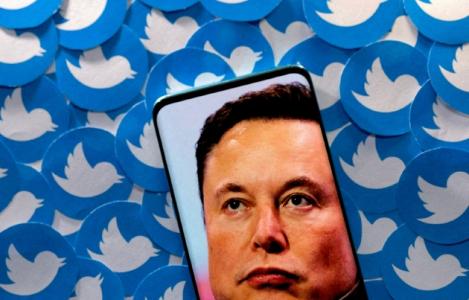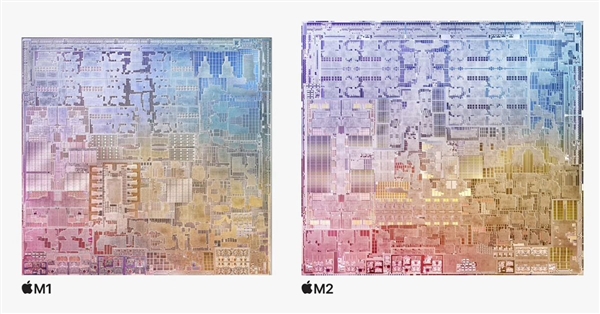your current location is:Home > Finance > depthHomedepth
If the iPhone can no longer dominate Apple's fortunes, can services?
On August 1, Tim Cook, CEO of apple, said at the third quarter earnings conference call last week that the iPhone "continues to change the world" 15 years after its release. There is no doubt that iPhone has also changed apple. Although technology stocks are still in a state of ups and downs, apple, as the company with the highest market capitalization in the world, still reported that its revenue increased slightly year-on-year, even exceeding analysts' expectations. This is largely due to iPhone, which generated more than $40billion in revenue in the third quarter.
However, as the global smartphone market matures, the dominant position of iPhone in Apple's destiny is weakening. At its peak, iPhone revenue accounted for two-thirds of the company's total revenue. But in the third fiscal quarter, its contribution was less than half. At Apple's UFO headquarters in Cupertino, California, engineers are studying a variety of devices that are expected to replace smartphones in the future. However, Apple's short-term future has taken shape, and more and more of its revenue and profits will no longer come from any hardware products, but from services.
In its first three decades, apple mainly produced and sold computers. In 2006, Apple's desktop Macintosh and notebook computers were surpassed by other products for the first time, and the iPod music player brought more revenue to apple.
The next year, the company launched iPhone and removed the word "computer" from the company's name. In the next 10 years, the company can even be called "Apple phone". In 2015, iPhone sales reached $155 billion, twice the total revenue of Apple's other businesses.
According to IDC, a market research company, after 15 years of expansion, the global smartphone market has entered a state of stagnation, and the company also expects no growth in the next four years. However, apple still has room to expand its market share. According to research company Kantar, although iPhone accounts for nearly half of smartphone sales in the United States, it accounts for only a quarter in Europe. Nevertheless, the era of rocket driven ultra-high growth is over.
Apple has also generated new revenue through other devices. Airpods headphones have become the market leader in smart headphones, and apple watch is the most successful of its kind. Last year, these "wearable devices" and home accessories contributed one tenth of Apple's revenue. In 2023, apple is expected to launch the first augmented reality (AR) helmet, and cook called this technology "far-reaching". Apple is developing user interfaces for cars, and may also make other parts of cars in the future. Some company insiders predict that Apple's efforts to enter the healthcare sector will eventually become the largest contributor to its revenue.
However, as apple continues to launch more products to sell to more people, it is also adopting another strategy at the same time. So far, the company has put 1.8 billion devices in the pockets and desks of many of the world's wealthiest consumers. Now, apple is selling access to these users to other companies and persuading users who own their devices to sign up for their own subscription services.
As Luca Maestri, Apple's chief financial officer, said in a recent earnings conference call, the activated Apple device is "a huge engine for our service business".
Apple's strategy is accelerating. Last year, services brought Apple $68billion in revenue, accounting for 19% of Apple's total revenue, twice that of 2015. In the third fiscal quarter, service business revenue accounted for a higher proportion of total revenue, reaching 24%. Apple did not specify the source of revenue, but it is estimated that the largest service business revenue comes from its app store. According to the data of sensor tower, a research institution, this part of revenue may reach $25billion last year.
The second part of service revenue may be the fees paid by Google to obtain the right to become the default search engine for Apple devices, which will be $10billion in 2020. Analysts believe that this figure is close to $20billion in the third quarter. Emarketer, another research company, estimates that Apple's fast-growing advertising business (mainly selling search ads in its app store) will generate nearly $7billion in revenue this year.
Most of the remaining service business income comes from a series of subscription services. According to Morgan Stanley, an investment bank, icloud storage, Apple Music and apple care insurance may be the most. Recent investment projects such as apple tv+, apple fitness, apple arcade and apple pay accounted for the remaining share. New services continue to emerge.
Last November, Apple launched a subscription product called Apple Business Essentials for small companies to provide technical support, device management and other services. In June this year, the company announced the launch of the "buy before pay" service. The company claims that there are 860million active paid subscribers, up nearly a quarter from a year ago.
Service business is a lucrative industry. Some of them are quite expensive for apple, especially TV set-top boxes, but this seems to enhance the company's image to some extent. However, "other businesses", especially the app store business and "Google tax", contribute a lot to the company's profits. In the third quarter, the gross profit margin of Apple's products was 35%, while that of its services business was 72%. In 2021, service business revenue accounted for 19% of Apple's total revenue, but 31% of its gross profit.
Erik woodwing, an analyst at Morgan Stanley, believes that Apple's business model is "shifting from maximizing sales growth to maximizing the profitability of its installation base". He believes that further expansion into the service industry may add another $1trillion to Apple's $2.6 trillion market value. Woodlin pointed out that the average Apple user spends about $10 a month on Apple services (including purchases in the app store), which is much less than their subscription to services such as LinkedIn or peloton, indicating that apple still has a lot of growth "runway".
At present, the market still regards apple as a hardware enterprise. According to Morgan Stanley's calculation, its share price is discounted by 18% compared with Google's parent company, alphabet and other technology platforms, and 49% compared with Netflix and other streaming media services. Apple seems to be guiding investors to regard it as a service company.
For example, the company has increasingly disclosed the estimated number of its activation devices in recent years. Cook recently claimed that integrating Apple's services with its hardware and software is "the core of our work and philosophy". Soon, the company may even sell hardware by subscription. In March this year, it was reported that Apple was developing an iPhone subscription plan, paying a monthly fee and providing regular hardware updates.
Of course, there are risks in entering the service industry. Consumers may not be used to subscribing to Apple devices, although many people have already purchased mobile phones on instalments. Woodlin pointed out that Apple needs to find a way to provide subscription services without alienating retailers and mobile operators. Currently, 85% of iPhones are sold through retailers and mobile operators.
With European antitrust regulators besieging app stores, the service business is facing particularly serious regulatory risks. Although subscription services provide stable revenue, not all services can withstand the recession. On July 28, apple warned that the growth of service revenue would slow down in the next quarter, partly because of what cook called the "cloud" over digital advertising.
Hardware may always be Apple's main business. It is even possible that a secret item in the Cupertino UFO will become a future iPhone. But with nearly 2billion Apple Devices circulating in the market, there is a greater opportunity to sell related products to people. However, only part of this advantage has been utilized at present. There is no doubt that consumers will continue to buy Apple's excellent products. From now on, when they do so, they will not only buy fashionable new devices for themselves, but also be attracted by Apple's digital store.
Previous:Recession or recovery? From Apple to Microsoft, what tech giants tell us this week
Next:After handing over "catastrophic" earnings, Intel's new hope is on foundry?
related articles
Article Comments (0)
- This article has not received comments yet, hurry up and grab the first frame~













